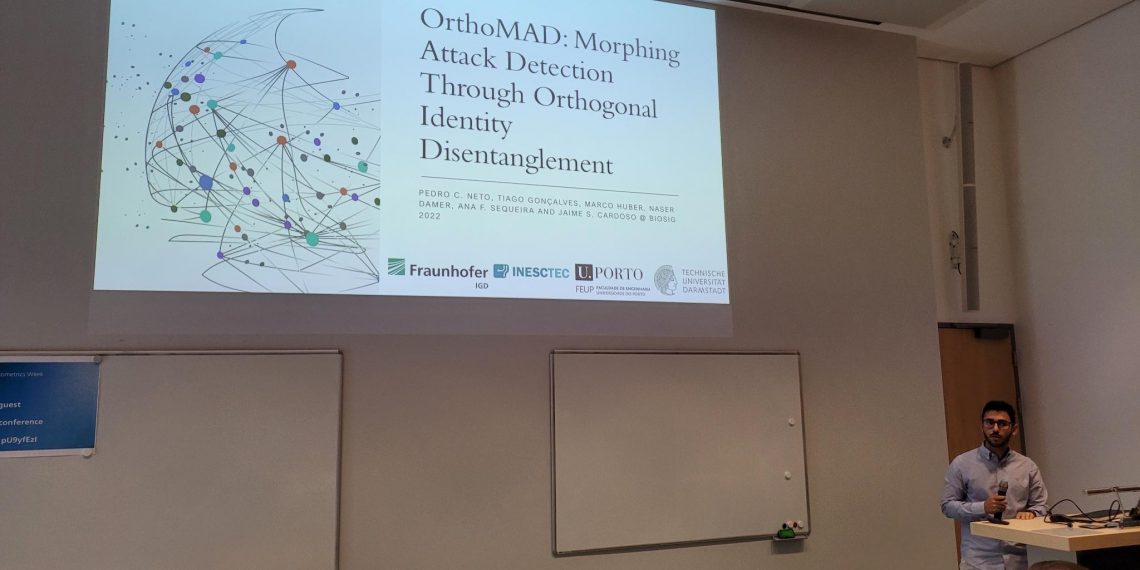The city of Darmstadt (Germany) hosted the 21st edition of BIOSIG 2022 – International Conference of the Biometrics Special Interest Group, considered the major European conference in the field of Biometrics. The event took place September 14, 15 and 16. INESC TEC joined this event within different scopes: the presentation of scientific work and the participation of one member in the event’s organisation.
On September 15, participants were able to attend the presentation of Pedro C. Neto, a researcher at INESC TEC’s Centre for Telecommunications and Multimedia (CTM), entitled “OrthoMAD: Morphing Attack Detection Through Orthogonal Identity Disentanglement”. This paper, selected for oral presentation, is a scientific publication that explores the detection of attacks on facial recognition systems merging two identities, so that the recognition system allows authentication with both. The scientific work brought together several CTM researchers, including Tiago Gonçalves and the scientific advisors of the first author (Ana F. Sequeira and Jaime S. Cardoso), in partnership with researchers from Darmstadt Fraunhofer IGD and Technische Universitat Darmstadt.
In addition to the scientific publication, it is important to highlight the role of the researcher Ana Filipa Sequeira (CTM), a member of the event’s Organising Committee since 2019, actively collaborating as Publicity and Proceedings Chair.
BIOSIG 2022 aimed to address the main topics within biometric recognition (with regard, for example, to multimodality to improve performance, indexing methods for quick identification, sample quality, mobile biometrics, data protection, detection of presentation attacks and legal regulation of these systems), presenting the latest innovations and practices in these areas.
BIOSIG (Biometrics Special Interest Group) is a group dedicated to the fundamentals of biometrics, seeking to connect practical experience and academic innovations, with emphasis on methods, techniques, processes, and implementations that ensure the authenticity and integrity of the entities involved in the use of information and communication systems.
The INESC TEC researchers mentioned in this news piece are associated with INESC TEC and UP-FEUP.



 News, current topics, curiosities and so much more about INESC TEC and its community!
News, current topics, curiosities and so much more about INESC TEC and its community!